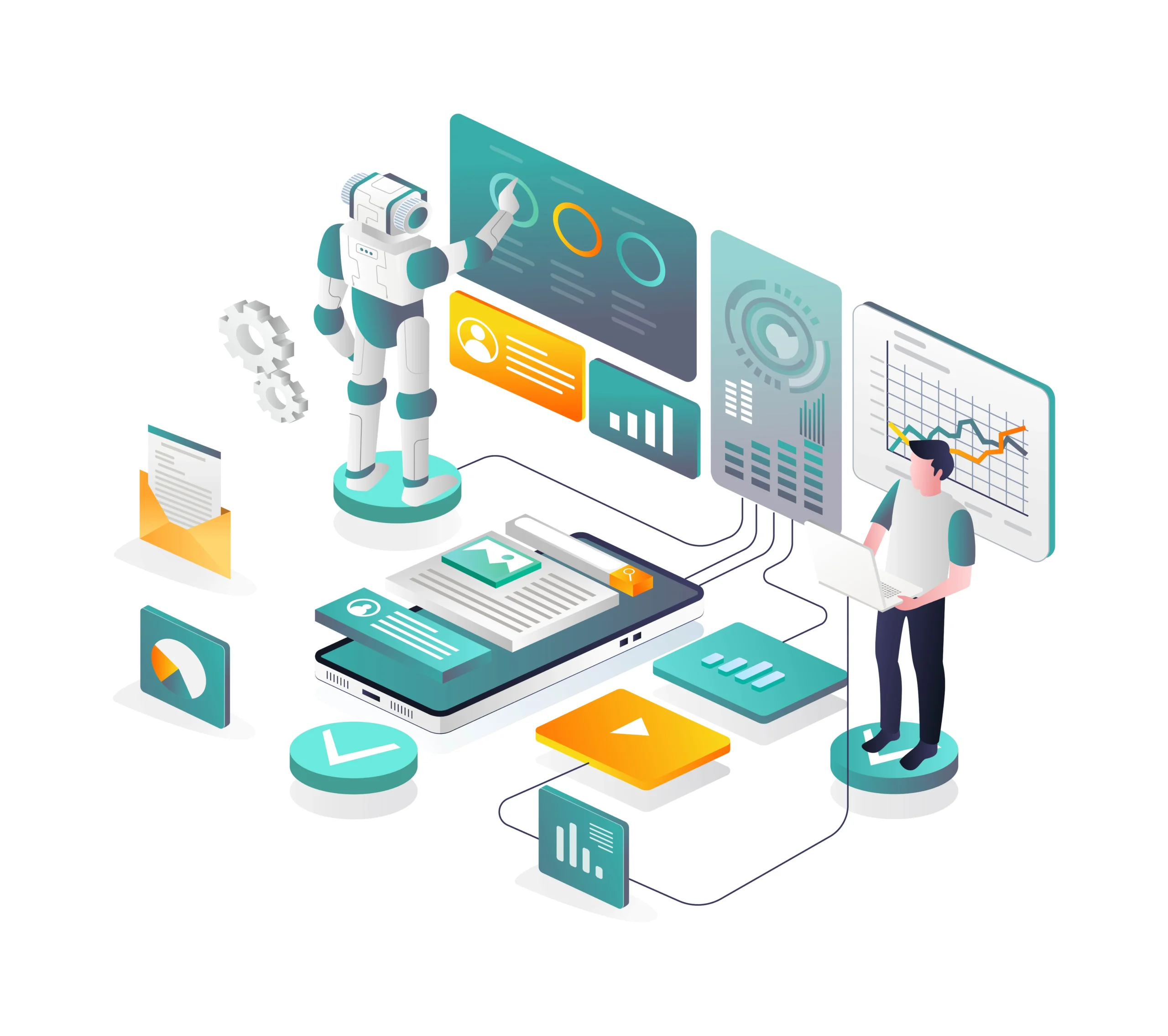Nexa Lab Blog – Professional Services Automation (PSA) software is a comprehensive platform designed to streamline and automate the core business processes of professional services organisations, such as management consultancies, software companies, cyber security firms, financial services providers, and internet information services.
PSA software combines various tools and systems into a single platform, including project management, resource management, time tracking and expense management, finance and billing, business intelligence, and collaboration tools.
The primary goal of PSA software is to optimise the delivery of services by professional services organisations, ensuring that projects are completed efficiently, effectively, and profitably.
This integrated platform helps professional services firms manage the core revenue-generating activities of their project delivery teams, including ensuring cost-effective utilisation of allocated resources and successful project deliveries.
Now, let us explore more about PSA software, including its differences from ERP, the core components, and some of the use case scenarios of this platform.
Let’s get to it!
The Difference Between PSA and ERP Software
Enterprise Resource Planning (ERP) systems and Professional Services Automation (PSA) solutions share the common goal of optimising business operations.
However, they serve distinct purposes.
ERP software is designed to manage the entire enterprise, including financial, human, and natural resources.
It was originally built with manufacturing, supply chain, and inventory in mind, but it can be used by various industries, including construction, healthcare, retail, and education.
ERP software helps streamline business operations by reducing manual tasks, automating processes, creating better visibility into data across multiple departments, and improving customer service.
Some examples of ERP software are Oracle NetSuite, Sage Intacct, Microsoft Dynamics 365, SAP ERP, and many more.
PSA software, on the other hand, is specifically designed for professional services organisations, such as architecture, engineering, accounting, or general consulting firms.
It focuses on managing the time and expense entry and management inherent in a people-centric business, providing features such as project management, resource allocation, time tracking, and billing.
PSA software is ideal for professional services firms that need to manage projects and resources efficiently, ensuring timely and budgeted project deliveries.
Some examples of PSA software are Datto Autotask, Epicor Professional Service, Deltek Vision, Atera, and many more.
Core Components of PSA Software
There are at least 3 core components of PSA software, according to Certinia. The first component is project management, followed by resource management, and finally project financials. Each component has features and functionality that help streamline processes and improve overall project performance.
1. Project Management
Effective project management is the backbone of any successful professional services organisation. PSA solutions offer comprehensive project management capabilities, including project planning, resource allocation, time tracking, and task automation. These features ensure that projects are delivered on time, within budget, and to the client’s satisfaction.
2. Resource Management
Resource management, which assigns workers to projects based on a thorough understanding of their abilities, availability, and suitability for particular requirements, is another crucial feature of PSA software. This type of workforce optimization helps to improve pipeline planning for future resource requirements while also increasing the effectiveness of current execution.
The PSA solution can simplify time and expense tracking by incorporating features that improve monitoring of project-specific resources. This precision is critical for accurate billing and expense management, as well as maintaining transparency and fairness in financial transactions.
3. Project Financial
Another essential element of PSA is financial management, which helps businesses keep a tight rein on their financial situation. A solution can guarantee good financial management of both project-specific and organisational finances with features like budgeting, financial forecasting, and integration with current accounting software.
With PSA software, you will simplify the invoicing process through features such as various billing models, including hourly, fixed fee, and retainer based billing.
PSA software simplifies the invoicing process with features like hourly, fixed fee, and retainer-based billing. With that feature, it will reduce the margin for error and enhance efficiency.
4. Customer Relationship Management (CRM)
Building and maintaining strong customer relationships is crucial for professional services firms, and that can be achieved through the CRM feature.
Actually, CRM cannot be considered one of the “core components” of PSA software. While some PSA might have a certain CRM feature inside it, most of the PSA software on the market does not include the rich CRM workflow inside it.
However, there are some alternatives that can be implemented through integration.
The integration of PSA solutions with CRM functionalities will enable organisations to manage customer interactions, track sales opportunities, and analyse customer behaviour. This data-driven approach helps businesses better understand their clients’ needs and tailor their services accordingly.
As we’ve seen, PSA software is a powerful tool for managing projects, resources, and finances. However, sometimes PSA software alon is not enough. You should also use monitoring software to manage your client devices. In our other article, we’ll explore the world of Linux monitoring, covering its key components, cloud monitoring capabilities, and advanced techniques to help you optimize your monitoring strategies.
Click the link below to learn more.
Learn More: Linux Monitoring: Components, Cloud Monitoring, and Advanced Techniques
Real-World Applications of PSA
Professional Services Automation (PSA) software has numerous real-world applications across various industries. Here are some examples:
- Managed Service Providers (MSPs): PSA software helps MSPs manage their service delivery processes, provides a ticketing system that enables MSPs to track and manage customer requests, automates workflows and business processes, streamlines the billing and invoicing process, and many more.
- Consulting Firms: PSA software helps consulting firms manage projects, track time and expenses, and generate invoices. It also enables them to analyse project profitability and optimise resource allocation.
- IT and Technology Services: PSA software is used by IT service providers to manage helpdesk tickets, track time spent on tasks, and automate billing processes. It also helps them to monitor service level agreements (SLAs) and improve customer satisfaction.
- Marketing and Creative Agencies: PSA software enables marketing and creative agencies to manage multiple projects simultaneously, track time spent on tasks, and collaborate with team members. It also helps them to generate accurate invoices and analyse project profitability.
- Architecture, Engineering, and Construction (AEC) Firms: PSA software is used by AEC firms to manage complex projects, track time and expenses, and collaborate with team members. It also helps them to generate accurate invoices and analyse project profitability.
- Accounting and Financial Services: PSA software is used by accounting and financial services firms to manage client engagements, track time spent on tasks, and generate invoices. It also helps them to analyse project profitability and optimise resource allocation.
- Legal Services: PSA software is used by law firms to manage cases, track time spent on tasks, and generate invoices. It also helps them analyse case profitability and optimise resource allocation.
Overall, PSA software has a wide range of real-world applications across various industries, helping organisations streamline their operations, improve productivity, and increase profitability.
As we’ve seen, PSA software is a powerful tool for managed service providers (MSPs) to streamline their operations and improve service delivery.
However, to provide top-notch services, MSPs also need to ensure they have visibility into their customers’ IT infrastructures. This is where SNMP monitoring comes in – a protocol that allows MSPs to monitor and manage network devices remotely. In our next article, we’ll dive deeper into SNMP monitoring. Click the link below to learn more.
Learn More: SNMP Monitoring: Definitions, Benefits, and its Difference with SSH
Conclusion
Professional Services Automation is a transformative solution that enables professional services firms to thrive nowadays. However, for a managed service provider (MSP), PSA software alone is not enough. It is important for MSPs to integrate their PSA software with CRM tools like Hubspot, Salesforce, or Zoho to further enhance customer relationship management and drive business growth.
Combining PSA software with CRM tools, MSPs can effectively manage client interactions, track sales opportunities, and provide personalised services to clients, ultimately leading to increased customer satisfaction and loyalty.
Do you want to improve your MSP operations efficiency but don’t know where to start?
Introducing Nexalab App Fusion!
Nexalab App Fusion is a comprehensive integration platform that easily connects your choice of monitoring tools with PSA software like Datto Autotask and other critical tools such as CRM software like Hubspot to optimise your troubleshooting processes and improve overall service delivery.
With App Fusion, you can easily streamline your workflows, automate repetitive tasks, and gain valuable insights into your operations to make data-driven decisions for your MSP business.
Start improving your efficiency today with Nexalab App Fusion! Contact us to learn more about Nexalab App Fusion.




